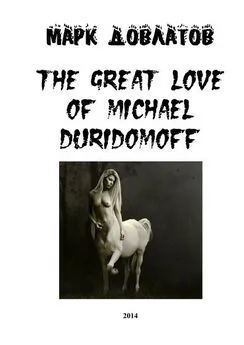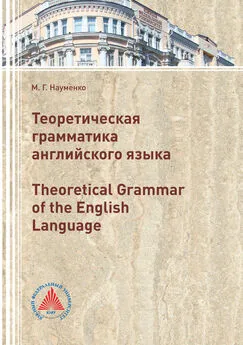Michael Ondaatje - The English Patient
- Название:The English Patient
- Автор:
- Жанр:
- Издательство:неизвестно
- Год:неизвестен
- ISBN:нет данных
- Рейтинг:
- Избранное:Добавить в избранное
-
Отзывы:
-
Ваша оценка:
Michael Ondaatje - The English Patient краткое содержание
The English Patient - читать онлайн бесплатно полную версию (весь текст целиком)
Интервал:
Закладка:
At lunch there is Caravaggio’s avuncular glance at the objects on the blue handkerchief. There is probably some rare animal, Caravaggio thinks, who eats the same foods that this young soldier eats with his right hand, his fingers carrying it to his mouth. He uses the knife only to peel the skin from the onion, to slice fruit.
The two men take a trip by cart down into the valley to pick up a sack of flour. Also, the soldier has to deliver maps of the cleared areas to headquarters at San Domenico. Finding it difficult to ask questions about each other, they speak about Hana. There are many questions before the older man admits having known her before the war.
“In Canada?”
“Yes, I knew her there.”
They pass numerous bonfires on the sides of the road and Caravaggio diverts the young soldier’s attention to them. The sapper’s nickname is Kip. “Get Kip.” “Here comes Kip.” The name had attached itself to him curiously. In his first bomb disposal report in England some butter had marked his paper, and the officer had exclaimed, “What’s this? Kipper grease?” and laughter surrounded him. He had no idea what a kipper was, but the young Sikh had been thereby translated into a salty English fish. Within a week his real name, Kirpal Singh, had been forgotten. He hadn’t minded this. Lord Suffolk and his demolition team took to calling him by his nickname, which he preferred to the English habit of calling people by their surname.
That summer the English patient wore his hearing aid so he was alive to everything in the house. The amber shell hung within his ear with its translations of casual noises—the chair in the hall scraping against the floor, the click of the dog’s claws outside his room so he would turn up the volume and even hear its damn breathing, or the shout on the terrace from the sapper. The English patient within a few days of the young soldier’s arrival had thus become aware of his presence around the house, though Hana kept them separate, knowing they would probably not like each other.
But she entered the Englishman’s room one day to find the sapper there. He was standing at the foot of the bed, his arms hung over the rifle that rested across his shoulders. She disliked this casual handling of the gun, his lazy spin towards her entrance as if his body were the axle of a wheel, as if the weapon had been sewn along his shoulders and arms and into his small brown wrists.
The Englishman turned to her and said, “We’re getting along famously!”
She was put out that the sapper had strolled casually into this domain, seemed able to surround her, be everywhere. Kip, hearing from Caravaggio that the patient knew about guns, had begun to discuss the search for bombs with the Englishman. He had come up to the room and found him a reservoir of information about Allied and enemy weaponry. The Englishman not only knew about the absurd Italian fuzes but also knew the detailed topography of this region of Tuscany. Soon they were drawing outlines of bombs for each other and talking out the theory of each specific circuit.
“The Italian fuzes seem to be put in vertically. And not always at the tail.”
“Well, that depends. The ones made in Naples are that way, but the factories in Rome follow the German system. Of course, Naples, going back to the fifteenth century …”
It meant having to listen to the patient talk in his circuitous way, and the young soldier was not used to remaining still and silent. He would get restless and kept interrupting the pauses and silences the Englishman always allowed himself, trying to energize the train of thought. The soldier rolled his head back and looked at the ceiling.
“What we should do is make a sling,” the sapper mused, turning to Hana as she entered, “and carry him around the house.” She looked at both of them, shrugged and walked out of the room.
When Caravaggio passed her in the hall she was smiling. They stood in the hall and listened to the conversation inside the room.
Did I tell you my concept of Virgilian man, Kip? Let me …
Is your hearing aid on?
What?
Turn it—
“I think he’s found a friend,” she said to Caravaggio.
She walks out into the sunlight and the courtyard. At noon the taps deliver water into the villa’s fountain and for twenty minutes it bursts forth. She removes her shoes, climbs into the dry bowl of the fountain and waits.
At this hour the smell of hay grass is everywhere. Bluebottles stumble in the air and bang into humans as if slamming into a wall, then retreat unconcerned. She notices where water spiders have nested beneath the upper bowl of the fountain, her face in the shade of its overhang. She likes to sit in this cradle of stone, the smell of cool and dark hidden air emerging from the still empty spout near her, like air from a basement opened for the first time in late spring so the heat outside hangs in contrast. She brushes her arms and toes free of dust, of the crimp of shoes, and stretches.
Too many men in the house. Her mouth leans against the bare arm of her shoulder. She smells her skin, the familiarity of it. One’s own taste and flavour. She remembers when she had first grown aware of it, somewhere in her teens—it seemed a place rather than a time—kissing her forearm to practise kissing, smelling her wrist or bending down to her thigh. Breathing into her own cupped hands so breath would bounce back towards her nose. She rubs her bare white feet now against the brindle colour of the fountain. The sapper has told her about statues he came across during the fighting, how he had slept beside one who was a grieving angel, half male, half female, that he had found beautiful. He had lain back, looking at the body, and for the first time during the war felt at peace.
She sniffs the stone, the cool moth smell of it.
Did her father struggle into his death or die calm? Did he lie the way the English patient reposes grandly on his cot? Was he nursed by a stranger? A man not of your own blood can break upon your emotions more than someone of your own blood. As if falling into the arms of a stranger you discover the mirror of your choice. Unlike the sapper, her father was never fully comfortable in the world. His conversations lost some of their syllables out of shyness. In any of Patrick’s sentences, her mother had complained, you lost two or three crucial words. But Hana liked that about him, there seemed to be no feudal spirit around him. He had a vagueness, an uncertainty that allowed him tentative charm, He was unlike most men. Even the wounded English patient had the familiar purpose of the feudal. But her father was a hungry ghost, liking those around him to be confident, even raucous.
Did he move towards his death with the same casual sense of being there at an accident? Or in fury? He was the least furious man she knew, hating argument, just walking out of a room if someone spoke badly of Roosevelt or Tim Buck or praised certain Toronto mayors. He had never attempted to convert anyone in his life, just bandaging or celebrating events that occurred near him. That was all. A novel is a mirror walking down a road. She had read that in one of the books the English patient recommended, and that was the way she remembered her father—whenever she collected the moments of him—stopping his car under one specific bridge in Toronto north of Pottery Road at midnight and telling her that this was where the starlings and pigeons uncomfortably and not too happily shared the rafters during the night. So they had paused there on a summer night and leaned their heads out into the racket of noise and sleepy chirpings.
I was told Patrick died in a dove-cot, Caravaggio said.
Her father loved a city of his own invention, whose streets and walls and borders he and his friends had painted. He never truly stepped out of that world. She realizes everything she knew about the real world she learned on her own or from Caravaggio or, during the time they lived together, from her stepmother, Clara. Clara, who had once been an actress, the articulate one, who had articulated fury when they all left for the war. All through the last year in Italy she has carried the letters from Clara. Letters she knows were written on a pink rock on an island in Georgian Bay, written with the wind coming over the water and curling the paper of her notebook before she finally tore the pages out and put them in an envelope for Hana. She carried them in her suitcase, each containing a flake of pink rock and that wind. But she has never answered them. She has missed Clara with a woe but is unable to write to her, now, after all that has happened to her. She cannot bear to talk of or even acknowledge the death of Patrick.
And now, on this continent, the war having travelled elsewhere, the nunneries and churches that were turned briefly into hospitals are solitary, cut off in the hills of Tuscany and Umbria. They hold the remnants of war societies, small moraines left by a vast glacier. All around them now is the holy forest.
She tucks her feet under her thin frock and rests her arms along her thighs. Everything is still. She hears the familiar hollow churn, restless in the pipe that is buried in the central column of the fountain. Then silence. Then suddenly there is a crash as the water arrives bursting around her.
The tales Hana had read to the English patient, travelling with the old wanderer in Kim or with Fabrizio in The Charterhouse of Parma , had intoxicated them in a swirl of armies and horses and wagons—those running away from or running towards a war. Stacked in one corner of his bedroom were other books she had read to him whose landscapes they have already walked through.
Many books open with an author’s assurance of order. One slipped into their waters with a silent paddle.
I begin my work at the time when Servius Galba was Consul … The histories of Tiberius, Caligula, Claudius and Nero, while they were a power, were falsified through terror and after their death were written under afresh hatred .
So Tacitus began his Annals .
But novels commenced with hesitation or chaos. Readers were never fully in balance. A door a lock a weir opened and they rushed through, one hand holding a gunnel, the other a hat.
When she begins a book she enters through stilted doorways into large courtyards. Parma and Paris and India spread their carpets.
He sat, in defiance of municipal orders, astride the gun Zam-Zammah on her brick platform opposite the old Ajaib-Gher—the Wonder House, as the natives called the Lahore Museum. Who hold Zam-Zammah, that “fire-breathing dragon,” hold the Punjab; for the great green-bronze piece is always first of the conqueror’s loot .
“Read him slowly, dear girl, you must read Kipling slowly. Watch carefully where the commas fall so you can discover the natural pauses. He is a writer who used pen and ink. He looked up from the page a lot, I believe, stared through his window and listened to birds, as most writers who are alone do. Some do not know the names of birds, though he did. Your eye is too quick and North American. Think about the speed of his pen. What an appalling, barnacled old first paragraph it is otherwise.”
That was the English patient’s first lesson about reading. He did not interrupt again. If he happened to fall asleep she would continue, never looking up until she herself was fatigued. If he had missed the last half-hour of plot, just one room would be dark in a story he probably already knew. He was familiar with the map of the story. There was Benares to the east and Chilianwallah in the north of the Punjab. (All this occurred before the sapper entered their lives, as if out of this fiction. As if the pages of Kipling had been rubbed in the night like a magic lamp. A drug of wonders.)
Читать дальшеИнтервал:
Закладка:










